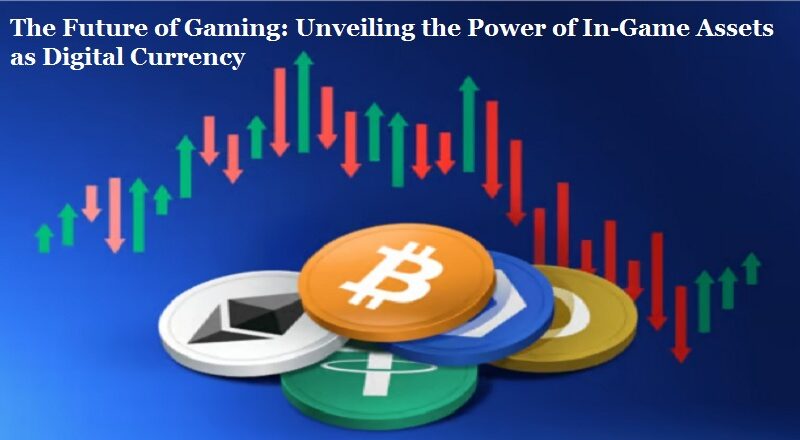The Future of Gaming: Unveiling the Power of In-Game Assets as Digital Currency
Introduction
The gaming industry is experiencing a profound transformation, with key trends reshaping its landscape. As the President and interim CEO of Xsolla, a leading player in providing tools and services to game developers. I’m excited to share insights into the evolving dynamics that are shaping the future of gaming.
1. Direct-to-Consumer Strategy: A Game-Changer
The success of the direct-to-consumer strategy is revolutionizing game distribution, fostering direct relationships with players, and driving increased engagement and sales. This approach, proven in PC gaming, is now gaining momentum in the mobile gaming space, with companies establishing web shops and online hubs for direct player interaction.
2. Industry Consolidation: Power in Unity
A noticeable trend in the gaming industry is the consolidation of larger companies acquiring smaller ones, reshaping power dynamics. This isn’t just about accumulating strength but pooling resources, sharing expertise, and fostering innovation. Microsoft’s acquisition of ZeniMax Media is a testament to how consolidation can lead to exciting projects and partnerships that push the boundaries of gaming possibilities.
3. Harnessing Artificial Intelligence: A Game Development Revolution
Generative AI is transforming the game development sector, accelerating processes, and reshaping team dynamics. With the global generative AI in the gaming market set to grow exponentially, teams are now focusing on talents capable of leveraging AI, enabling quicker development cycles and fostering a collaborative environment where technology and human ingenuity intersect to create more immersive gaming experiences.
4. Anticipating Regulatory Changes: Adapting to Shifts
The future of gaming industry must be prepared for significant regulatory changes, such as the EU’s decision to allow other app stores in 2024. This could impact payment options and reshape the mobile gaming landscape. Additionally, the growing importance of music in gaming, exemplified by titles like “Cyberpunk 2077,” is becoming a powerful marketing tool, enhancing the overall gaming experience.
5. In-Game Assets: The New Digital Currency
In-game assets, propelled by blockchain technology and NFTs, have become a revolutionary concept, transcending the virtual realm. The evolution of these assets, from traditional items confined to the game to tradeable entities with real-world value, has ushered in a new era of ownership, scarcity, and economic opportunities for players. Game developers are supporting this shift, integrating NFT functionality to enhance the gaming experience and foster a symbiotic relationship with the blockchain industry.
6. Cultural Significance and Collectability
In-game assets have acquired cultural significance and collectability, comparable to physical items like rare coins or artwork. These digital items symbolize status and achievement within the gaming community, leading to the creation of virtual museums showcasing valuable digital artefacts.
7. Integration with Real-World Applications: Expanding Possibilities
Beyond gaming, in-game assets have the potential to integrate with real-world applications in fashion, art, and virtual real estate. The concept of digital ownership extends to various industries, blurring the lines between virtual and physical worlds.
Conclusion
The future of gaming is a captivating blend of global expansion, industry consolidation, and technological advancements. As in-game assets take centre stage, transforming how players engage with games, the impact of blockchain and NFTs is undeniable. The intersection of virtual and physical worlds expands possibilities, ensuring an exciting and challenging landscape for game developers and players alike. The future of gaming promises continued excitement and innovation, shaping an industry that’s truly at the forefront of digital entertainment.





Pingback: Unveiling the Power of AWS Managed Blockchain for Seamless Business Integration - Future Business Boost